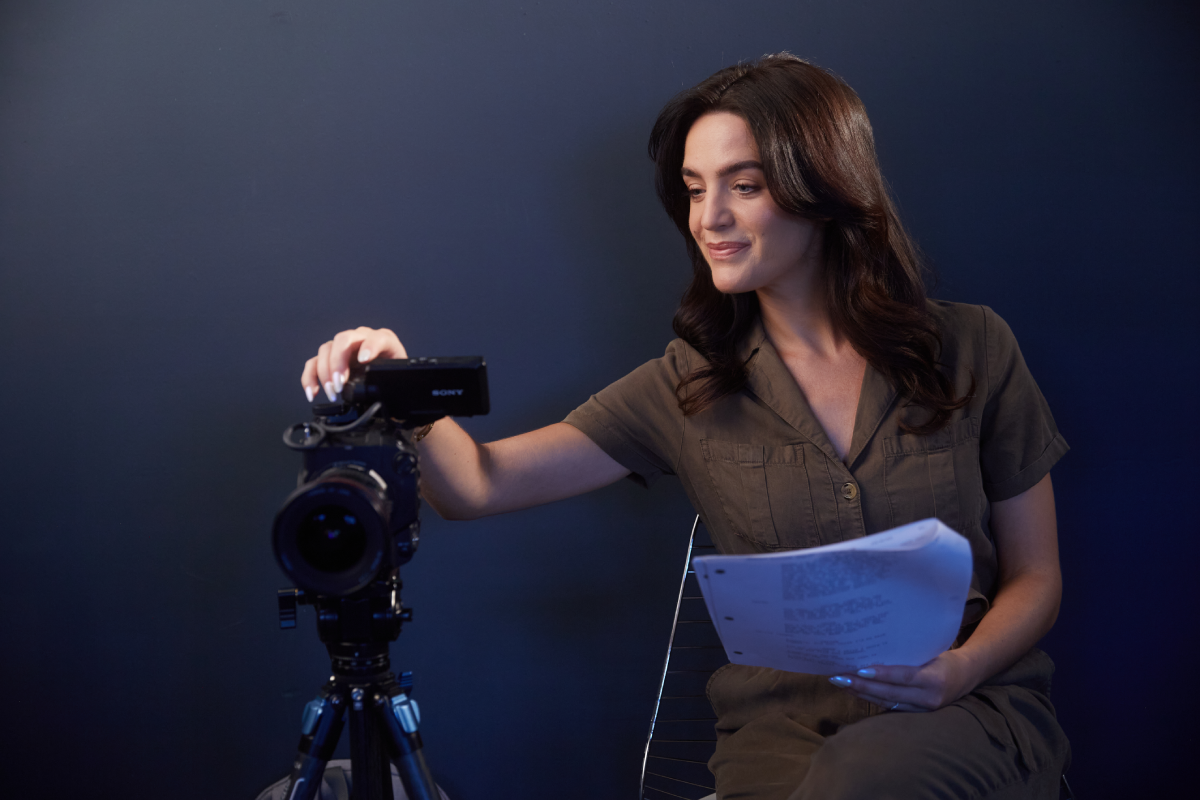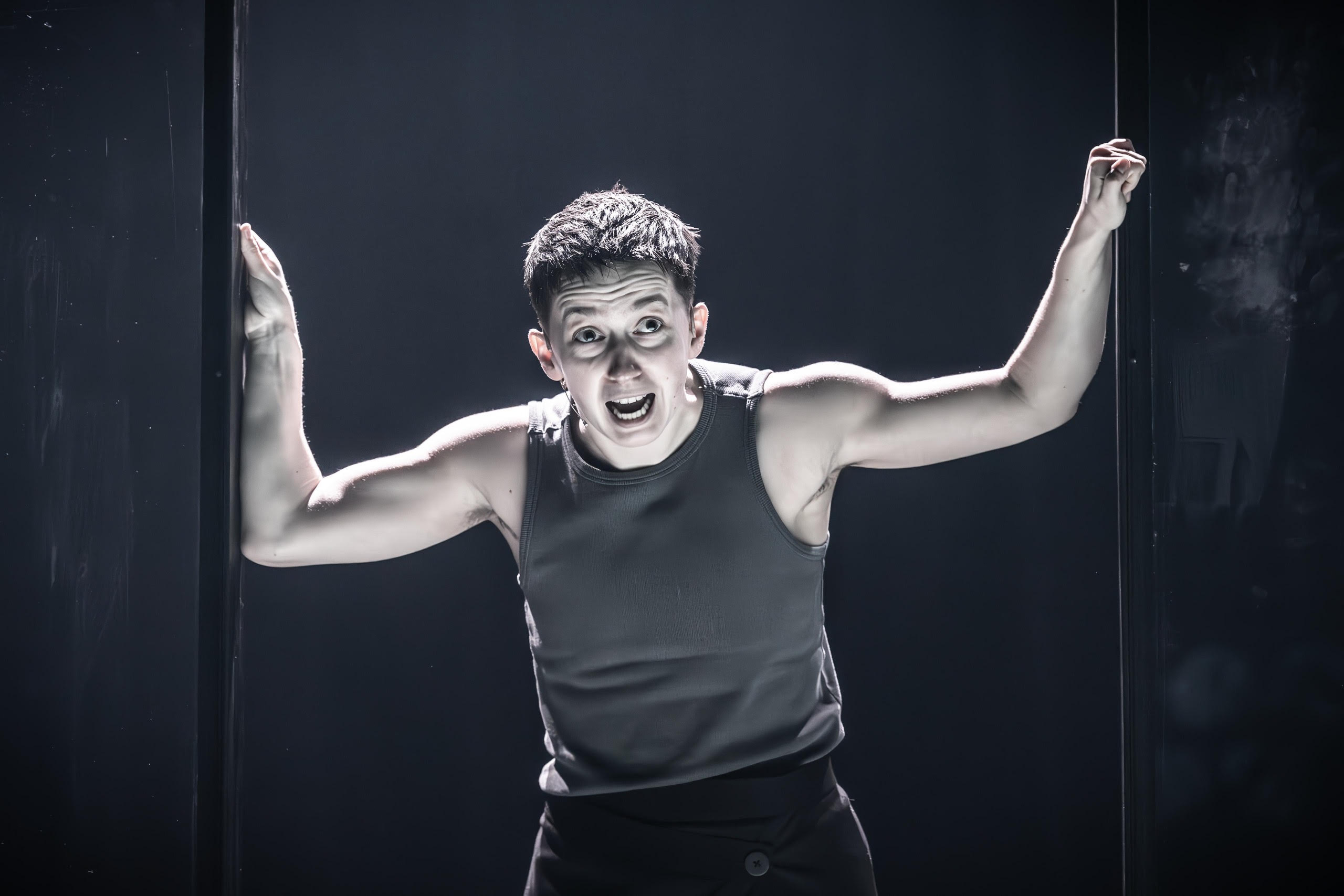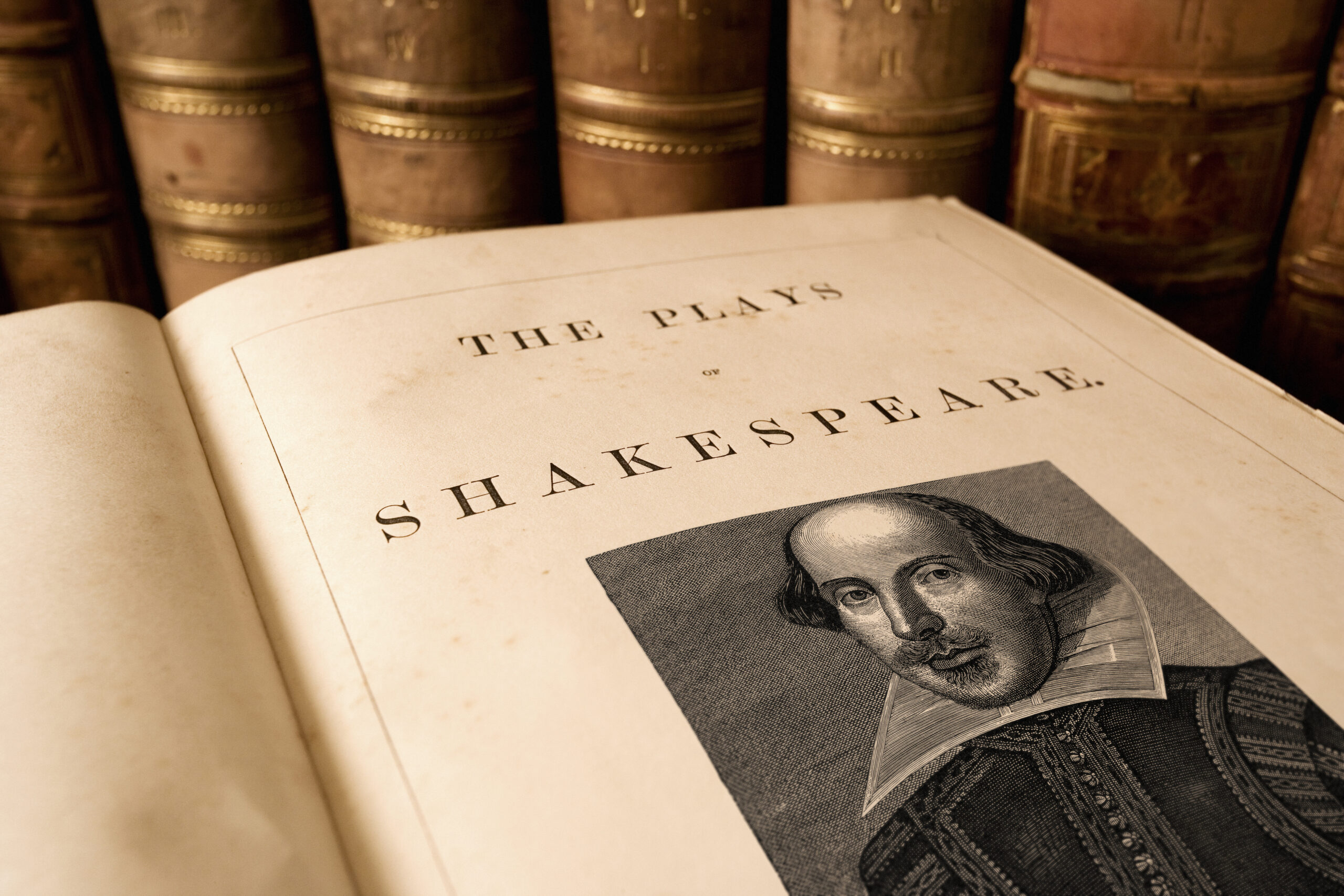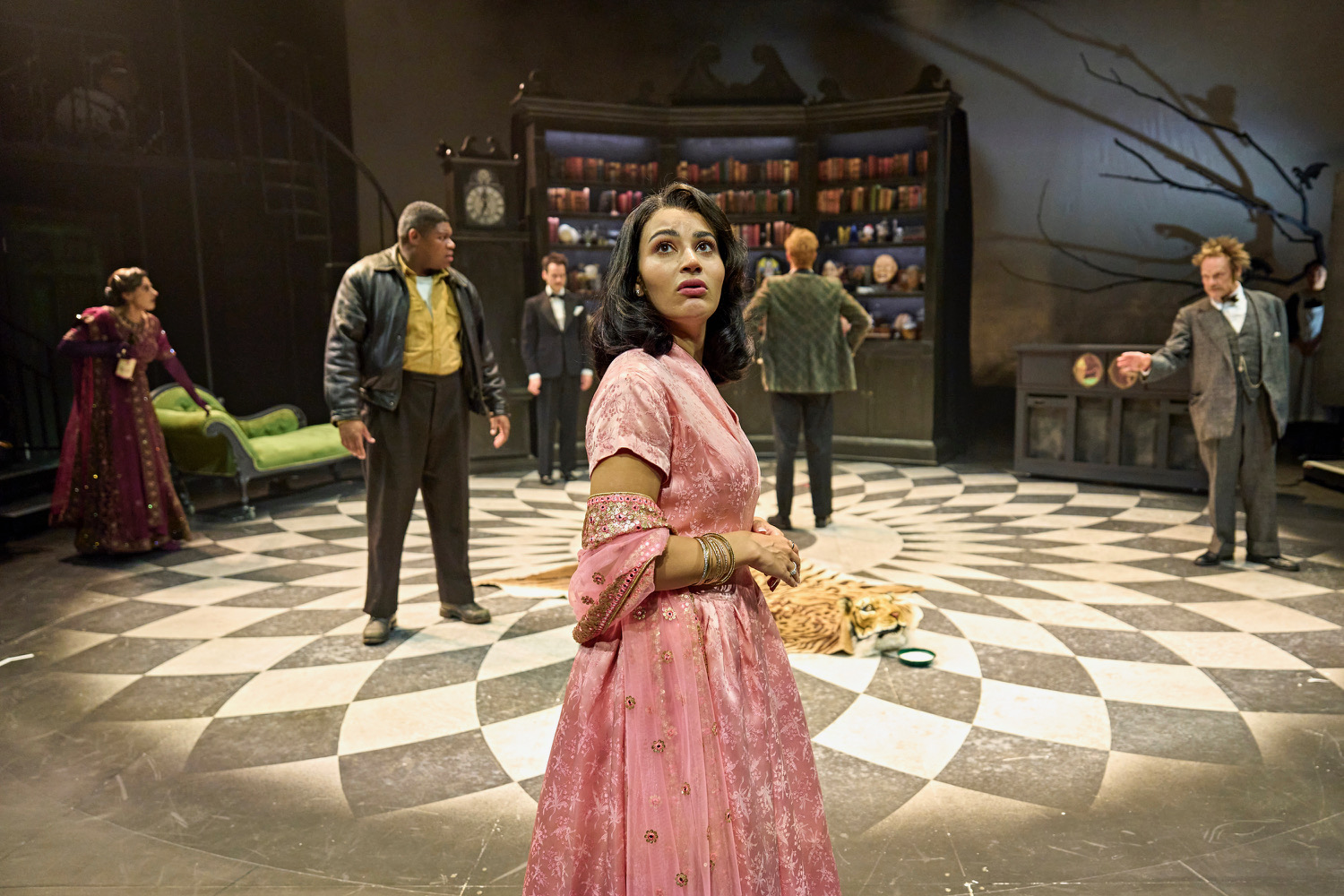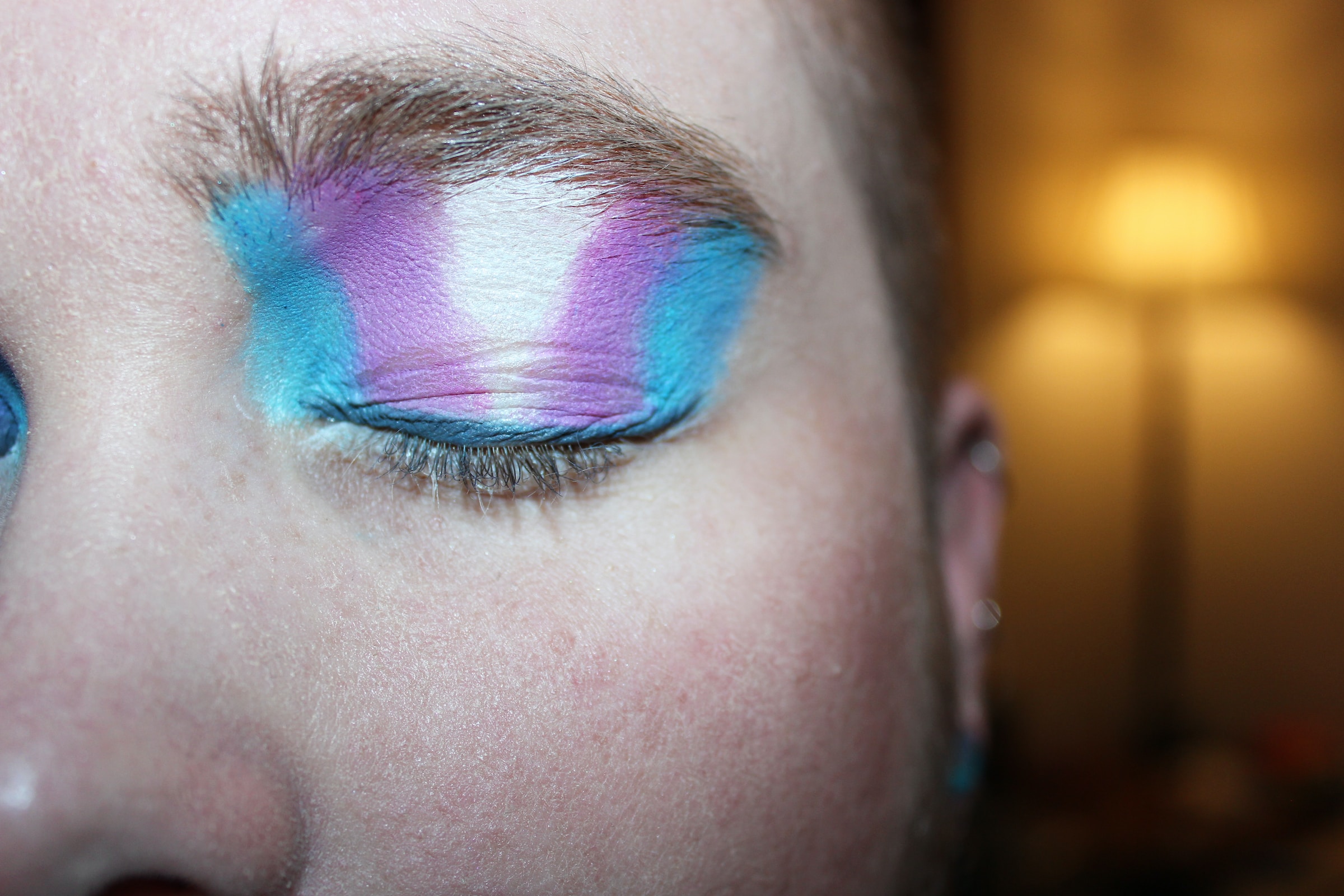Actor Ros Watt discusses how they approached performing as ‘Malcolm’ in a modern adaptation of Shakespeare’s Macbeth alongside David Tennant and Cush Jumbo.
Ros Watt is a Scottish trans masculine actor (pronouns they/he), who is best known for their recent performance in the Donmar Warehouse’s production of Macbeth, directed by Max Webster. The production starred David Tennant and Cush Jumbo and in 2024 it transferred to the Harold Pinter Theatre, where Ros reprised their role as ‘Malcolm’.
After graduating from Royal Central School of Speech and Drama, Ros went on to play ‘Renfield’ in Dracula: Mina’s Reckoning at the National Theatre of Scotland. They also starred in productions of The Outrun at the Edinburgh Royal Lyceum and Edinburgh International Festival’s Silent Faces’ production of Godot is a Woman in 2022 and Wait Till the End (The Pappy Show).
Ros has performed across London at Battersea Arts Centre, Royal Vauxhall Tavern, The Divine and The Glory as their drag character ‘Strange Little Man’ and in 2024, they placed second in Europe’s largest drag king competition ‘Man Up’.
We caught up with Ros to discuss their process for working on Shakespeare using translations and modern resources. They also talk about their experience as a trans non-binary actor and how art, at its core, is a form of protest and why it’s important that theatre represents all of society.
Hi, Ros! Can you tell us when you first became interested in acting?
I attended drama classes from a very young age back home in Inverurie. I was incredibly shy at school and struggled to express myself much in day-to-day life and really found drama a safe space, and acting was an extension of that. Becoming someone else who was confident and sure of what was happening around them was incredibly appealing to me. For me, it was always about being someone else or somewhere else far away from me for a while and much less about the craft.
You trained at the Royal School of Speech and Drama. How did your training prepare you for performing Shakespeare?
I attended a youth theatre in Inverurie called Mitchell School of Drama, who regularly staged Shakespeare as their annual productions, so I was lucky to enter drama school with a decent understanding of performing Shakespearean text. While at drama school, our first Shakespeare project was a comedy, Twelfth Night, and I was delighted to play ‘Malvolio’. This project felt like my first time rebelling from what had been my usual casting, and my focus was to really find a transformation within the character.
I would also argue that, for me, Shakespeare isn’t very different from any other text. There’s a reason he’s one of the most famous writers in history — his texts are completely relatable across the decades. I believe my role as the actor is to find the real person behind the text and then, through those words, try to live the feelings behind them and allow the audience to understand the journey [and] relate. These are real people experiencing the most extreme things a person can go through – I like to think about how to ground that feeling and experience for an audience to understand and believe it.
 Ros Watt as ‘Renfield’ in ‘Dracula: Mina’s Reckoning’ / Image credit: Mihaela Bodlovik
Ros Watt as ‘Renfield’ in ‘Dracula: Mina’s Reckoning’ / Image credit: Mihaela Bodlovik
Can you tell us about your experience playing ‘Malcolm’ in the Donmar Warehouse’s production of Macbeth, and what drew you to the role?
This was my second job after graduating drama school just a few months prior, so it was pretty bonkers. I was surrounded by so many fantastic actors, all of whom are at the top of their game. It was such a privilege to be in the room with them and I was like a sponge, trying to learn as much as I could from everyone around me.
The production used binaural sound and the audience were wearing headphones to experience the production. This meant that the creative team were creating a whole world alongside us, which was incredibly unusual as, often, we weren’t hearing what they were hearing.
I very quickly fell in love with the role of Malcolm. I remember chatting to our director, Max Webster, at my audition about how much I’d previously overlooked his importance in the plot and that he was just such a sweetie. I was completely intrigued by the circumstances presented to him — he’s just come back from war, where he was captured and had to be rescued. Upon his return he’s made heir to the throne of Scotland. Not long after this, his father is murdered and he’s forced to flee on his own, without his brother, to England, and then with the help of his Uncle Siward he brings an army back to Scotland, where he wins the war and becomes King. I mean, that is a gift of a character journey.
I applied this journey to my casting type, and as an actor who’s quite short and looks young, the weight of responsibility as someone who is still quite young and not physically powerful is incredibly exciting. The danger of being the next target, unsure who to trust – it adds stakes upon stakes upon stakes and I feel so incredibly privileged to have played him.
Can you share your process for how you prepared for working on a Shakespeare play?
How I start working on most plays is to first sit down and read the text. With Shakespeare, that’s a bit more tricky. I really struggle to sit and read the full text and comprehend much of it in any kind of helpful way so I start with a YouTube synopsis – generally a little cartoon that talks you through the full play, plot lines and character relationships. I already knew Macbeth quite well but I still force myself to start there and break the play down into the simplest terms.
Sometimes with Shakespeare, I try to watch a version of it – a recorded iteration or a modern movie adaptation to really get my head round the play as a whole in a non-intimidating manner. However, with Macbeth, I really fought against this. I had a grasp of the play as a whole and I didn’t want to allow myself to be influenced by other interpretations of Malcolm.
On this production specifically, I then moved to translating the text of my characters scenes in to simple English and understanding what I’m saying and what my scene partners are saying back to me, so when we got to working the scenes in the Shakespearean language, I had complete understanding of where I was and the possibilities of action and intention.
Are there any additional demands for a performer when it comes to performing Shakespeare on stage?
I love performing Shakespeare. There’s something about approaching a role that literally thousands of people have played before you. Finding your own interpretation, seeking the richness in the text and maintaining the history of the play is incredibly exciting. Shakespeare is packed with obscene circumstances, small and huge plot holes, dramatic deaths, battles and parties. It’s hard work but has all the things that are exciting to actors – or to me, at least!
What advice can you share for actors who might feel intimidated by classical text?
It isn’t English class and there’s no expectation for anyone to fully understand the Shakespearean text on first read. Most actors I know use resources like No Shit Shakespeare, Sparknotes or Litcharts to get translations in regular English alongside the original text.
It can be helpful to discover the character using your own words first. Play the scene speaking in regular English before then applying the Shakespeare on top.
Also, there are many places to watch Shakespeare interpretations of the stories that make it way easier to get your head round the story than simply being sat reading the very heavy text.
How do you approach performing Shakespeare in a modern adaptation whilst staying true to the original text and intent?
Typically, as an actor in a modern adaptation, the circumstances are somewhat set out for me. All I can do is build that world in my head in as detailed a manner as possible, work the text so the character is as rich as possible and then smoosh them both together and adjust either till it works.
 Ros Watt as ‘Friend’ in ‘The Outrun’ / Image credit: Mihaela Bodlovik
Ros Watt as ‘Friend’ in ‘The Outrun’ / Image credit: Mihaela Bodlovik
What do you think modern adaptations of Shakespeare bring to audiences and performers?
I would be one of the first to admit that I often struggle with understanding the full plot and detail of some of Shakespeare’s most challenging plays. I think modern adaptations are incredibly exciting and make the play way more accessible, especially for younger audiences.
I also believe it offers the artist – actor, director, maker, creative – a new challenge of ensuring the truth and believability of the text is maintained while bringing it into a modern world. How can we truly believe that ‘Juliet’ would kill herself for a lover she just met? How can we understand ‘Hermia’s’ father’s rules against her marrying ‘Lysander’? These questions are thrilling and it encourages us to examine the extremes of the world we live in and understand how fragile our society is.
Are there any other Shakespearean plays you’d like to perform in and which character would you want to play?
Oh my goodness, so many! Right now, after a run of fairly tragic plays, I would adore a Shakespearean comedy. Dream roles include ‘Puck’ in Midsummer, ‘Dromio’ in The Comedy of Errors, and, honestly, as a trans actor, any lead role would be pretty cool. There’s something in tackling the gender bending of ‘Viola’ and ‘Rosalind’ head on that is very intriguing to me. And who wouldn’t want to play ‘Hamlet’ one time?
You’ve also performed at the Edinburgh International Festival in a production of The Outrun and at the National Theatre of Scotland in Dracula: Mina’s Reckoning. As a Scottish actor, how important is it to you that your heritage is reflected on stage and in the arts?
It’s vital. Too many times, I sit down to watch television and witness an English actor giving their best interpretation of a general Scottish accent. Scotland has so many phenomenal actors, creatives and, more importantly, stories that deserve a platform. We are part of Britain and yet only very rarely do we see Scottish stories playing at the National, for example.
I feel incredibly privileged to have worked in Scottish theatre as well as down south. Scottish work makes me feel like I’m at home, and everything outside of that feels like an adventure. Both are brilliant.
As a trans non-binary actor what has your experience been like, auditioning for characters that have been initially written as cis-gender?
It’s been very interesting. I’ll be honest and admit it’s been very hard at times. When I read a new script and visualise who the writer intended, I very rarely see myself. I often have to sit down and justify casting myself in my own head: how could it make sense if I played this role? I try to put myself into the mind of the director and make absolutely flawless reasoning of how I could become this person in these circumstances.
Some days it feels exciting, and I feel a slight advantage to have it all figured out. But other times, when things maybe feel a bit difficult, it can be incredibly disheartening. Walking into an audition waiting room and seeing a bunch of cis men who all look the part when I so clearly don’t can be tricky to overcome before entering the room. But hey, I’ve been lucky a few times and it’s worked out in my favour. I like to believe that the industry is shifting and maybe will leave a little more space for trans and non-binary actors in many different roles.
Do you have any advice for trans or non-binary actors on how to approach or adapt to playing characters from Shakespeare’s work?
Shakespeare is a gift for trans actors! I mean, when the plays were written they were gender bent. I try to meet the character where they are at in their circumstances first and I don’t necessarily think about their gender in the beginning. Then, if it makes sense, or is potentially adding stakes to the performance that don’t contradict the circumstances, I will consider the character as trans and while the text doesn’t change, there’s just some extra history added to the character’s existence.
After rehearsing as Malcolm in Macbeth for a while, I then added the notion of him being trans. It added an extra pressure on him as a daughter that had become a son. The meaning of masculinity in this world and what that entailed. In the England scene, where ‘Macduff’ receives the news about his wife and children, Malcolm continually implores him to ‘dispute it like a man’ and other similar pleas all centred around manliness or masculinity. I was struggling to find the truth of that as my modern 2025 self, but as a vulnerable-feeling trans person thrust into responsibility, there’s something to understand there about why that is his first response.
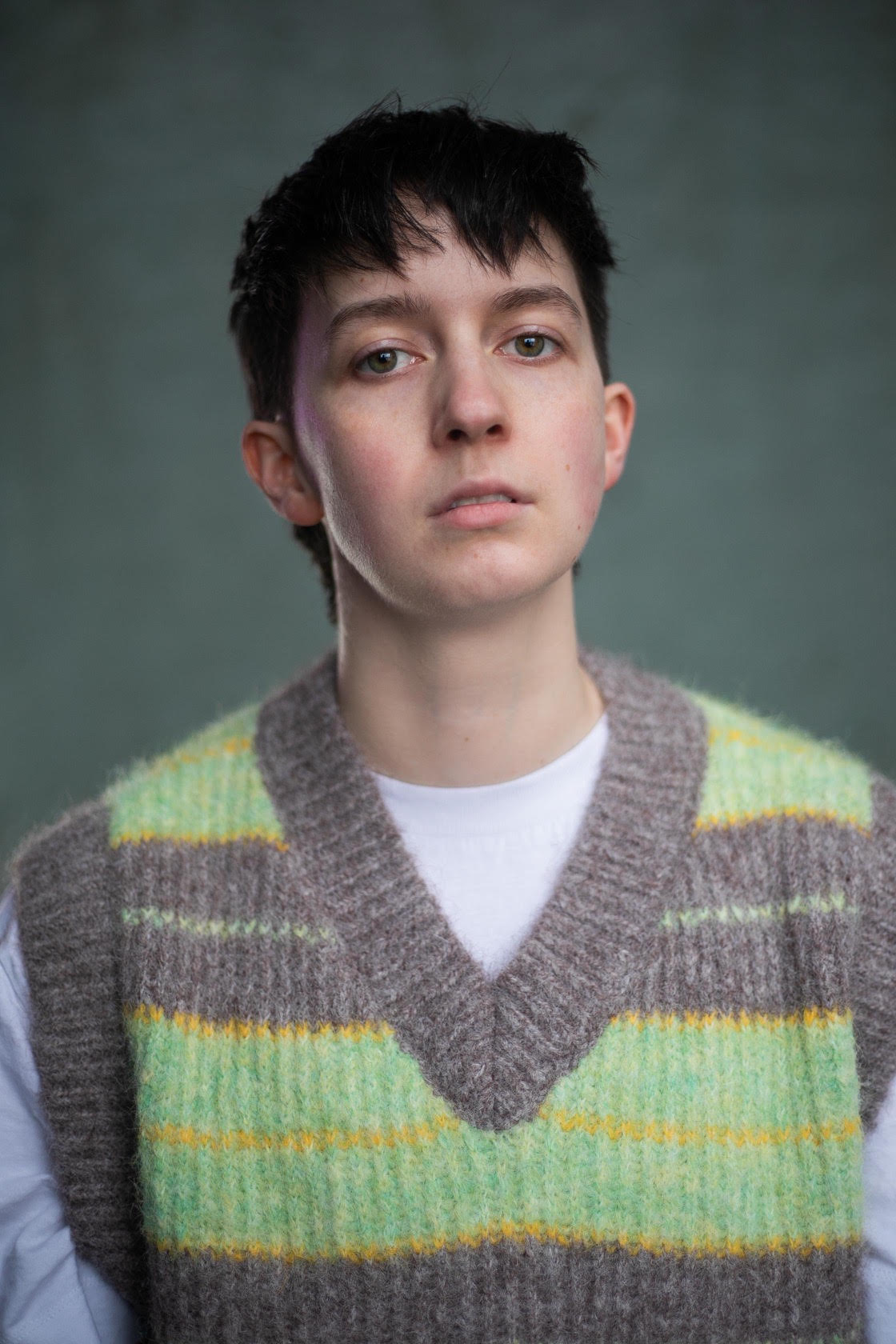
Image credit: Patch Bell
What advice would you give to other trans and non-binary actors who are struggling to find their place in the industry?
This is a hard question to answer because I feel like I’m still trying to find my own place in the industry at the moment. It’s hard out there for trans actors, especially with the current political situation in the UK and America. I think it still feels like a big risk for producers to cast a trans person in many roles. So unless a story is specifically about transness, they are often reluctant to cast someone visibly queer.
I’m incredibly lucky to have been so busy since graduating and I’m heavily aware I’m in the minority among my trans peers given the amount of work I’ve had, and while I’m incredibly grateful for every opportunity, I do still find it very hard to get in the room for auditions.
To counter this, I focus on making my own work too about stories I want to tell. I have a drag persona which I perform around London, as well as developing my own play at various scratch nights. The queer creative community is amazing and I feel so privileged to work with and be part of things with so many amazing artists.
As a neurodivergent performer, do you have any techniques or prep that helps you approach your work?
I’m really patient with myself. It’s taken many years, but I try to have trust in my own process and try not to compare my work to other actors. I am constantly reminding myself it isn’t school, I’m not being tested on anything and there are so many resources there to help me. I lean on the people there to support me, and I admit when I’m struggling with something.
We are all learning so much in every creative process and I just take the space I need to make the best work I can. I recommend everyone to do the same – neurodivergent or not.
Why is it important to you that space is made available for inclusion and diversity in theatre?
I think it’s vital that theatre represents the society and world in which we live. Audiences crave seeing things that they understand or have witnessed, or things that they don’t yet know about that’s tangible and real. I mean, it’s an interesting question to attempt to answer to its fullest potential as a white, masc-presenting individual. Trans femmes, people of colour, people with disabilities, and trans people of colour are painfully underrepresented in the arts generally, including theatre. There’s a lot of talent out there that’s rarely seen and it’s in everyone’s best interests to see that talent at the forefront of theatre.
Theatre has always been for the people, and it’s often been ahead of TV and film in terms of representation. We live in a terrifying political climate and what’s happening in America isn’t far from happening here. Art, at its core, is a protest, and we need to use that power to tell new stories and get conversations started about real world issues in a productive place. Politicians don’t lead with empathy, but I like to believe that theatre and the arts encourage it.
We’d like to thank Ros for taking the time to talk to Spotlight.
To find out more about Ros you can find them here: @ros.watt
 Karen is a British actor of south Asian descent, born and raised in Birmingham, England. She is a graduate of The American Academy of Dramatic Arts in Manhattan, New York. Most notably known for her role as Nicole Shelley in the award winning Apple TV+ series Ted Lasso starring opposite Jason Sudeikis, Hannah Waddingham, Brett Goldstein and Nick Mohammed. She also played Noreen Khan in the first two seasons of the BBC television series Phoenix Rise.
Karen is a British actor of south Asian descent, born and raised in Birmingham, England. She is a graduate of The American Academy of Dramatic Arts in Manhattan, New York. Most notably known for her role as Nicole Shelley in the award winning Apple TV+ series Ted Lasso starring opposite Jason Sudeikis, Hannah Waddingham, Brett Goldstein and Nick Mohammed. She also played Noreen Khan in the first two seasons of the BBC television series Phoenix Rise.
In Theatre, Karen starred in Ayad Akhtar’s The Who and the What at The English Theatre of Hamburg in Germany and performed opposite Scottish actor Alan Cumming in the original musical Me and the girls directed by Tony award winner Douglas Carter Beane. She has also played leading roles in regional premieres of David Harrower’s Blackbird and Duncan Macmillan’s People, Places and Things. In 2022 she was directed by Iqbal Khan in Mismatch at The Birmingham Rep as part of the Sky Comedy Rep Festival. Her other credits include lead roles in Camel written by Charly Clive, Welcome to Thebes, As you like it, Lysistrata, 4.48 Psychosis, The Tempest, Good Fit, She Kills Monsters, American As, Julius Caesar for The Public Theater at Shakespeare in the Park and Journey to America at the world famous Carnegie Hall, New York.
Karen’s selected work on film includes starring in The Waves for MTV Entertainment directed by BAFTA award winner Sindha Agha, Man on the Phone for Red Bear Films and Frank’s Plan for Amazon Prime. She has also appeared in commercials for Aramco, WhatsApp with Alex Scott, TK Maxx, West Midlands Combined Authority and Northwell Health Insurance in New York. She recently performed at the An Tain Arts Centre in Dundalk, Ireland in Why are you here? Directed by Paul Hayes.
Headshot credit: Andy Brown













